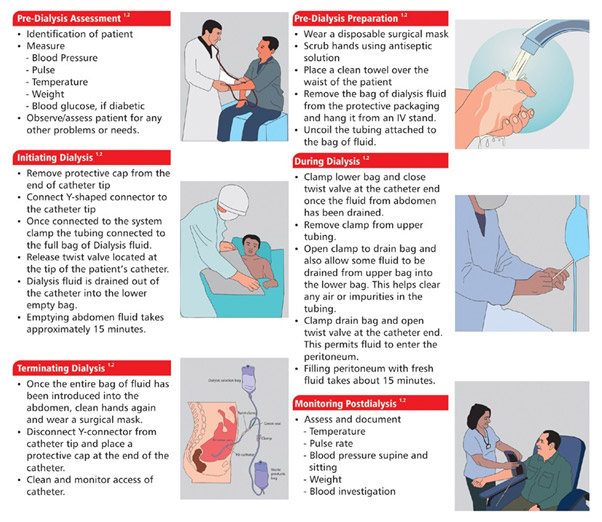Combining Comfort With Care
The convenience and comfort of our visitors is of paramount importance to us. To ensure a hassle free experience, Medica has made arrangements for certain conveniences within the hospital premises for the patients and other guests who visit us.
ATM Facility
An SBI ATM and a YES BANK ATM is placed in the lobby for easy withdrawal of money if required.
Blood Bank
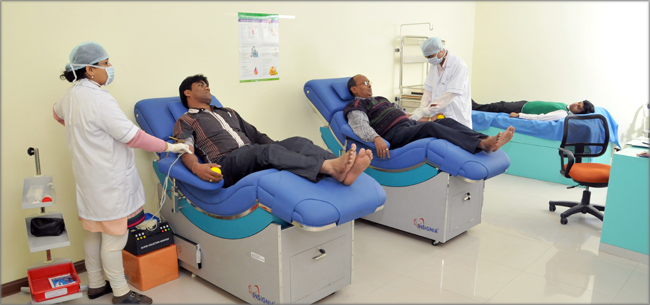
Pharmacy
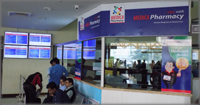 MEDICA Pharmacy, the pharmacy retail outlet promoted by Medica Pharmacy Private Limited (MPPL) has embarked on the concept of neighborhood Pharmacy with the philosophy that it will meet the changing needs of the patient by ensuring that the medicines are available easily, conveniently, with pharmaceutical advice, thus building trust and confidence with the customer. It responds to the most competitively changing environment in retail by maintaining high professional standards through regular monitoring and timely action and regular training of Pharmacists to keep their skills up to date.
MEDICA Pharmacy, the pharmacy retail outlet promoted by Medica Pharmacy Private Limited (MPPL) has embarked on the concept of neighborhood Pharmacy with the philosophy that it will meet the changing needs of the patient by ensuring that the medicines are available easily, conveniently, with pharmaceutical advice, thus building trust and confidence with the customer. It responds to the most competitively changing environment in retail by maintaining high professional standards through regular monitoring and timely action and regular training of Pharmacists to keep their skills up to date.
Prayer Area
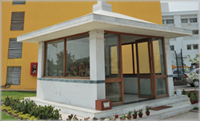 Medica also provides a prayer area on the Ground floor to meet the spiritual needs of people of all religious backgrounds. Religious books are also on display for guests to read.
Medica also provides a prayer area on the Ground floor to meet the spiritual needs of people of all religious backgrounds. Religious books are also on display for guests to read.
Our Temple, installed at the premises on 27th November 2009, is the place where all the hospital’s activities commence.
Valet Parking
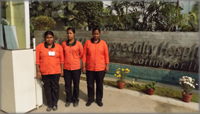 A novel venture, Medica has introduced Valet Parking, a first by any healthcare facility in the country. A few interested local girls have been given driving lessons and trained to handle vehicles of all makes and kinds. Our valet parking girls are stationed at the entrance to ensure smooth, hassle free parking.
A novel venture, Medica has introduced Valet Parking, a first by any healthcare facility in the country. A few interested local girls have been given driving lessons and trained to handle vehicles of all makes and kinds. Our valet parking girls are stationed at the entrance to ensure smooth, hassle free parking.
Dialysis
Top of the Line System and Support
The artificial process by which wastes & unwanted water are eliminated from our body when our kidneys are unable to do so naturally. Our Kidneys help maintain normal salt & water balance in our body by removing the liquid waste from the blood. Therefore, normal functioning of the kidneys is critical.
Dialysis process at MEDICA includes facilities like:
- Online HDF
- High Flux Dialysis with Bibag
- Low Flux Dialysis
- Single-use Low & High Flux Dialysis
- Plasmapheresis
- Haemodialysis
- 4008 SC Dialysis Machines
- SLED in ITU/ICU
- Peritoneal Dialysis
- Ultra-pure Water
- Non-invasive Monitors with Each Bed Individual TV
- Single Needle Heamodialysis
Dialysis Checklist
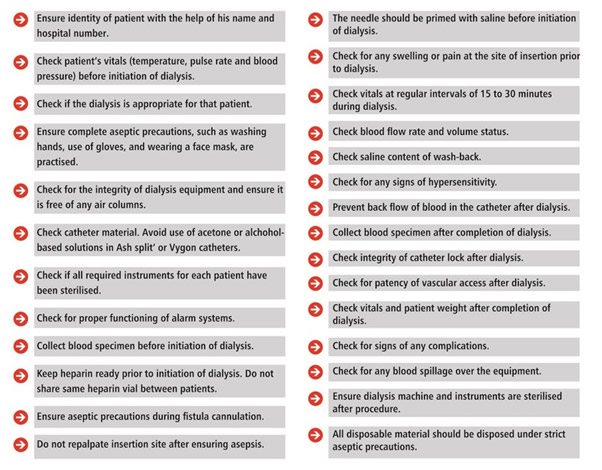
Haemodialysis Procedure
1. Predialysis Assessment
- Identification of patient
- Measure: Blood pressure, Pulse, Temperature & Weight
- Blood glucose, if diabetic
- Observe/assess patient for any other problems or needs
2. Rinsing and Priming
- Done to ensure that all air is eliminated from the circuit and rinse out residual sterilant
- Use the sterile ‘nontouch technique’
- Connect dialysis solution
- Priming of blood lines
3. Testing of Alarms
- Blood circuit, Arterial pressure, Venous pressure, Air detector, Dialysis solution circuit, Conductivity, Temperature & Blood leak
4. Vascular Access
- AV fistula is preferred
- Fistula assessment-examine for bruit, signs of infections, bruising.
- Identify the needle site
- Under aseptic precautions, clean the fistula using chlorhexidine.
- Apply tourniquet
- Stabilise the vessel with dressing.
5. Initiating Dialysis
- Insert the fistula needle bevel up
- Remove tourniquet
- Connect the limbs of needle to the dialysis circuit and start the blood pump at 100 mL/min.
- Observe for pain or swelling
- Increase the blood flow rate to desired level after the circuit filled with blood.
- Initiate dialysis solution flow and adjust transmembrane pressure.
6. Monitoring during Dialysis
- Monitor Pulse rate & BP every 30 to 60 minutes in chronic dialysis & every 15 minutes in acute dialysis
- Food and fluid intake
- Complications
7. Terminating Dialysis
- Pump sterile normal saline into the arterial side until blood is displaced.
- Cleaning and disinfection of equipment
8. Monitoring Post-dialysis
- Assess & document: Weight, Pulse Rate, BP supine and sitting, Temperature, Blood investigations & Vascular access patency
Peritoneal Dialysis
